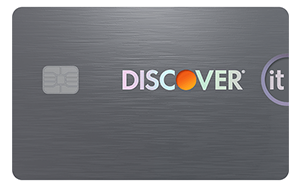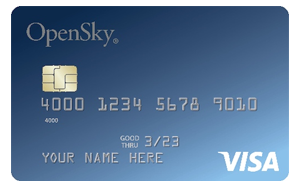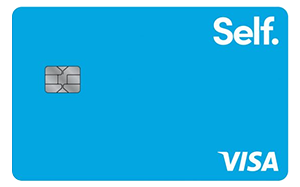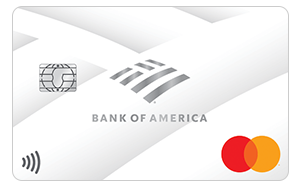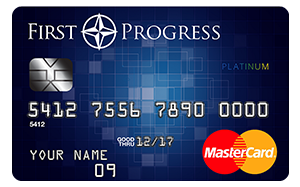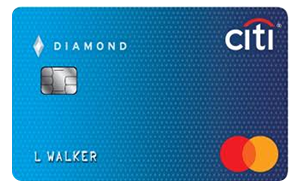Apartment hunting is never easy, but it’s even more difficult if you’re young or you’re renting your first apartment and you have no credit history.
By following a few tips, you’ll be able to secure an apartment, establish a strong track record as a tenant, and even start building credit when you have none.
Table of Contents
Can you rent an apartment without credit?
Yes, you can rent an apartment even if you have no credit history. While many landlords perform credit checks, you can often work around their credit requirements by showing that you’re capable of paying your rent on time in other ways.
Why is it so hard to get approved for an apartment with no credit?
Like lenders, landlords use credit scores to assess how reliable or risky you would be as a tenant. However, instead of assessing how likely you are to repay a loan, landlords are assessing how likely you are to pay your rent on time and in full each month.
Running credit checks has become such a common practice in the rental industry that finding ways around them is a difficult task. However, it’s not impossible to get an apartment even if you have no credit.
10 tips for landing an apartment with no credit history
If you’re completely new to credit, then don’t worry. It’s possible to rent an apartment with bad credit or no credit by using alternative methods to convince your potential landlord that you’re reliable.
Try these methods:
1. Rent from a private owner
Most apartment complexes and property management agencies will run a credit check when you apply to rent an apartment. Although there’s no universal minimum credit score required to rent an apartment in the US, large companies are likely to turn you away if you have a damaged credit score or no credit score at all.
Smaller (independent) landlords are more likely to make exceptions. In other words, you have more of a shot at winning them over through other means.
2. Provide references
References from past landlords are a good substitute for a credit score. They serve the same function: showing that you’re responsible and can meet deadlines. Giving a landlord evidence that you have these traits will reassure them that you’ll always pay your rent on time.
If you’re young (or a recent immigrant) and this is your first apartment in the US, then you won’t have any references from past landlords. However, you can provide references or letters of recommendation from former teachers, professors, or employers.
3. Show proof of income
Landlords won’t be as concerned about your lack of a credit history if you can show that you’re financially responsible and have a steady source of income. Provide them with proof of employment or a bank statement showing ample savings.
Experts advise spending no more than one-third of your monthly income (after tax) on housing. This isn’t always feasible, but if you can pick an apartment that will let you follow the 1/3rd rule, the landlord will probably feel better about renting to you.
4. Get a roommate
Ultimately, landlords just want to know that whoever’s on the lease is responsible and capable of keeping on top of rent payments. If you apply for an apartment with a co-renter who has good credit, a solid source of income, and good references, then the landlord may be willing to overlook your own insufficient credit history.
This is a good option if you’re trying to rent an apartment at 18 years old and you don’t have a job or savings yet. However, make sure that you budget well so that your roommate isn’t left paying your half of the rent.
5. Offer to move in immediately
Although the landlord-tenant relationship can feel one-sided, the truth is that landlords need people to rent from them. Many landlords operate with very thin profit margins. Having a steady income is crucial for offsetting the costs of home ownership, such as utility bills, mortgage payments, and insurance.
For this reason, it’s in a landlord’s best interest to keep their apartments occupied at all times.
Offering to move in immediately may give you an advantage over other applicants if the landlord is in a hurry to fill their vacancy. This is more likely to work if the landlord hasn’t received many offers.
6. Pay more upfront
If you have some extra cash, put it on the table right off the bat to ease your landlord’s concerns about whether you’ll pay your rent. There are two ways you can use extra cash to convince a landlord to rent to you have no credit history:
- Pay a larger deposit: The security deposit on an apartment is designed to protect the landlord from financial loss if you stop paying your rent, cause damage to the property, or break your lease. If they would generally require one month’s rent as a deposit, you could offer double or triple that amount.
- Pay several months of rent upfront: If your rent is already paid, then there’s no risk that you’ll miss your payments. This is usually the main fear that landlords have, so paying the first 3 months or more upfront will give them some peace of mind and make them more likely to rent to you.
7. Find someone who’s looking to sublet their apartment
Getting your own apartment isn’t the only option you have. Ask around to see if anyone you know has a room they’re trying to sublet in their apartment.
By subleasing, you’ll be making an agreement with the current tenant of the property rather than the landlord. This means you may be able to avoid the whole process of undergoing a credit check.
8. Propose a shorter lease term
Most rental contracts last for a fixed period. Many residential leases have a term of 1 year, which is a fairly big commitment for both the landlord and tenant.
If you’ve explained your circumstances to your prospective landlord and they’re still reluctant to rent to you, then try proposing a shorter lease term, like 6 months, 3 months, or even 1 month. This will give your landlord a way out of the agreement if you don’t pay your rent.
While you’ll have less security with this approach, it will solve your situation in the short term and give you time to start building your credit. Once your lease is officially up, your landlord might also be willing to rent to you on a month-to-month basis.
9. Get a cosigner
You may need to get a cosigner or guarantor to get accepted for a rental if the above approaches fail. Just make sure that the person you pick as your cosigner has a good credit score, otherwise they might not be able to help much.
Although landlords will be way more likely to accept you as a tenant if you apply with a cosigner, there is a catch—the cosigner will be accepting legal responsibility for paying your rent if you don’t. To avoid straining your relationship, make sure that you always pay your rent in full and on time if you choose to use a cosigner.
10. Search for no credit check apartments
One last option you have for getting an apartment when you have no credit is to search online for apartments with no credit check. You can try searching on standard apartment search websites or on websites tailored to helping people find starter apartments that don’t require a credit check.
However, bear in mind that sometimes there’s a reason that certain landlords don’t require a credit check. Do your due diligence and inspect the property carefully before signing the lease to ensure that you’re not being taken advantage of.
How to build credit for the future
Once you land your first apartment and the pressure is off, you should focus on establishing a credit history. Fortunately, there are plenty of ways to build credit at 18 if you’ve just moved away from home, as well as to build credit for the first time at a later age.
Here are some steps you can take once you’ve secured an apartment:
Get a credit card
As with apartments, it can be hard to qualify for a credit card when you have no prior credit history. However, you can still get a secured credit card or credit card for beginners. Use your card regularly and responsibly and you’ll build a decent credit score in no time.
| Credit Card | Best For | Credit Score | Annual Fee | Welcome Bonus | |
|---|---|---|---|---|---|
| Secured Overall | 300–669 | $0 | Cashback Match | ||
| No Credit Check | 300–669 | $35 | |||
| Beginners | 300–669 | $25 | |||
| No Annual Fee | 300–669 | $0 | |||
| Bad Credit | 300–669 | $49 | |||
| Rebuilding Credit | 300–669 | $0 | |||
| Credit Card | Best For | Credit Score | Annual Fee | Welcome Bonus | |
|---|---|---|---|---|---|
| Secured | 300–669 | $0 | Cashback Match | ||
| Unsecured (No Deposit) | 300–669 | $39 ($0 for the first year if you set up autopay) | |||
| Beginners | 300–669 | $49 | |||
| Students | 580–739 | $0 | Cashback match | ||
| No Annual Fee | 300–669 | $0 | |||
| High Approval Odds | 300–669 | $35 | |||
| Building Credit | 300–669 | $0 | |||
Get a credit-builder loan
There are some loans that are very easy to qualify for because they’re designed specifically to help new borrowers build their credit histories. Search online or call local banks and credit unions to find a local lender that will extend you one of these credit-builder loans.
Get credit for your rental payments
Paying rent doesn’t normally build credit, but services like Rental Kharma or RentReporters can help you establish a credit history by adding your rent payments to your credit report. You can also sign up for Experian Boost for free to build credit by paying your apartment utility bills.
Keep up with your rent
Relatedly, don’t focus on building credit to the extent that you fall behind on your rental payments on your new apartment. Obviously, doing so will come with severe consequences, up to and including eviction. While eviction doesn’t hurt your credit, it will show up in a background check and can make it much harder to find other apartments in the future.
Having a thin or nonexistent credit file doesn’t mean you won’t be able to get an apartment, although it will make your search more difficult. The important thing is to take steps to build good credit now so that you only face this problem once.
Takeaway: With a few expert tips, you can convince landlords to rent you an apartment even with no credit history.
- Seek out independent property owners to rent from. Large property management companies usually require credit checks.
- Lower the risk for landlords by showing proof of savings or income, offering to pay more upfront, or offering to sign a month-by-month lease agreement.
- Landlords may also be more inclined to rent to you if they’re desperate for tenants and you agree to move in right away.
- Providing references from teachers or employers can help your chances of getting approved for an apartment by showing that you’re responsible.
- Alternatively, you can sign a sublease, get a cosigner for your rental application, or seek out apartments with no credit check.

